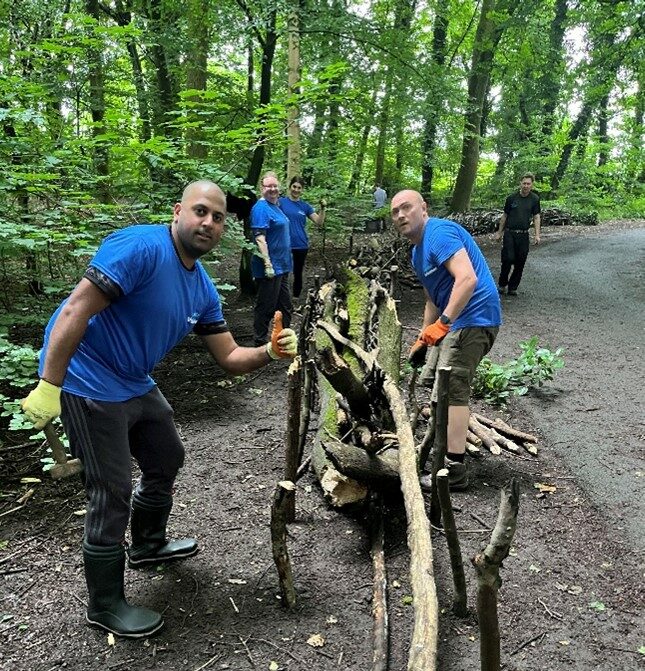Staff at Manchester science company Lubrizol swapped test tubes for twigs as they created an environmentally-friendly ‘dead hedge’ in the city’s biggest park.
Heaton Park now boasts a long, wildlife-friendly hedge made from branches and twigs, thanks to the voluntary efforts.
The team based in Blackley, normally work in the field of chemistry but volunteered their services as part of Lubrizol’s ‘Global Month of Impact’ project which sees its employees giving back to communities all over the world.
They worked hard transporting wood to the area and building the dead hedge which is intended to provide hiding places and nesting habitats for many creatures, food for insects, as well as acting as a natural barrier preventing people from cutting through the adjoining woodland so it can be a haven for flowers.
Heaton Park’s senior estate officer Dave Delaney, said the dead hedge was vitally important for the ecology of the park.
He said: “The Lubrizol team created a large “run” of hedging that will protect the ground from erosion and provide a strong, safe habitat for our resident critters for a long time whilst increasing the biodiversity of the area.
“Heaton Park is very grateful for the hard work and enthusiasm everyone from Lubrizol put in and we would be happy to have them back for future projects.”
Covering more than 600 acres, Heaton Park attracts millions of visitors a year and is also situated near Lubrizol’s offices.
Sarah Boothby, part of the Lubrizol team, said: “We were delighted to give our time to create this attractive new feature for the park. It’s important to us to give back to the communities we serve.
“By creating a wildlife-friendly barrier, the volunteering efforts of the Lubrizol team will be seen for years to come.”



